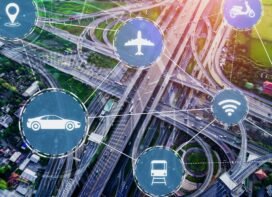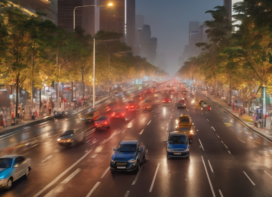
As the world becomes increasingly connected, urban areas are faced with the challenge of managing traffic more efficiently. Traditional traffic management methods have proven to be inadequate, leading to congestion, delays, and safety hazards. This is where intelligent traffic management systems (ITMS) come in.
ITMS uses a combination of technologies such as sensors, cameras, and data analytics to monitor traffic flow and manage traffic in real-time. By analyzing traffic data, ITMS can identify congestion points, predict traffic patterns, and optimize traffic signal timings.
The benefits of ITMS are numerous. It reduces traffic congestion, minimizes travel time and fuel consumption, and improves road safety by preventing accidents. It also helps reduce the environmental impact of traffic by reducing emissions.
ITMS leverages cutting-edge technologies, such as artificial intelligence and machine learning, to collect and analyze vast amounts of traffic data in real-time. By monitoring traffic patterns, identifying congestion points, and predicting traffic flows, ITMS can optimize traffic signals and route traffic in a more efficient manner.
The benefits of ITMS are clear. It reduces congestion, minimizes travel time, and improves road safety by preventing accidents. Additionally, it can help reduce the environmental impact of traffic by optimizing traffic flows and reducing emissions.
Furthermore, ITMS is not just about traffic management – it’s about creating a smart city ecosystem. By integrating with other smart city technologies, such as public transit systems and smart parking solutions, ITMS can help create a seamless and sustainable urban transportation system.
Moreover, ITMS can be customized to meet the unique needs of each city. Whether it’s managing traffic
during major events or accommodating special needs for pedestrians and cyclists, ITMS can be programmed to adapt to a wide range of situations.
Intelligent Traffic Management Systems (ITMS) have the potential to make a significant impact on India’s future by addressing the country’s growing traffic and mobility challenges. With a population of over 1.3 billion people, India’s urban areas are experiencing rapid urbanization, leading to increased congestion, longer commutes, and higher levels of air pollution.
ITMS can play a critical role in addressing these challenges by leveraging technology to optimize traffic flow and reduce congestion. By using real-time data and analytics, ITMS can identify areas of high congestion, predict traffic patterns, and adjust traffic signals and routes accordingly to improve traffic flow. This can help reduce travel times, fuel consumption, and emissions, as well as improve road safety.
In addition to improving traffic flow, ITMS can also enhance public transportation systems by providing real-time information about bus and train schedules, reducing wait times, and optimizing routes. This can encourage more people to use public transportation, which can further reduce traffic congestion and air pollution.
Furthermore, ITMS can help support the growth of smart cities in India by integrating with other smart city technologies, such as smart parking solutions, public Wi-Fi, and waste management systems. By creating a holistic ecosystem of smart city technologies, ITMS can help improve the overall livability and sustainability of Indian cities.
Overall, ITMS can play a critical role in shaping India’s future by addressing the country’s growing traffic and mobility challenges. By leveraging technology and data to optimize traffic flow and enhance public transportation systems, ITMS can help create a more sustainable and livable urban environment for all.
Overall, ITMS is the future of traffic management. By harnessing the power of data and technology, cities can create a more efficient, sustainable, and enjoyable transportation system for everyone.
ITMS is not just about traffic management, but also about creating a smart city ecosystem. By integrating with other smart city technologies, such as public transit systems and smart parking solutions, ITMS can help create a seamless and sustainable urban transportation system.
In conclusion, ITMS is the future of traffic management. It provides a more efficient, safe, and sustainable transportation system for cities, making urban areas more livable and enjoyable for everyone.
 TrafficInfraTech Magazine Linking People Places & Progress
TrafficInfraTech Magazine Linking People Places & Progress


